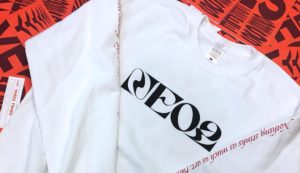Marlies Dekkers
Our Rating: 3 Stars - It's a start
Price: $ $ $ $
Country of origin: United States
Official brand website: Visit

Marlies Dekkers is a brand that prioritizes sustainability and is committed to making a positive impact on the environment. With an overall rating of ‘It’s a start’, the brand is taking steps towards a more eco-friendly approach. One of the ways Marlies Dekkers contributes to sustainability is by using some eco-friendly materials, including recycled materials, in the production of their products. This not only reduces the demand for new materials but also helps in lowering the carbon footprint.
In addition to using eco-friendly materials, Marlies Dekkers also utilizes sea freight to transport their products. By opting for sea freight over air freight, the brand is able to significantly reduce its climate impact. Sea freight is known to have a lower carbon footprint compared to air freight, making it a more sustainable choice.
However, there is still room for improvement when it comes to minimizing textile waste in the manufacturing process. At present, there is no evidence to suggest that Marlies Dekkers has implemented measures to minimize textile waste. Textile waste is a major environmental issue, and brands that take steps to reduce waste can make a significant difference in tackling this problem.
Another area where Marlies Dekkers has room for improvement is in the impact of microplastics. As of now, there is no evidence to indicate that the brand has a policy in place to minimize the impact of microplastics. Microplastics are tiny particles that can end up in water systems and have a detrimental effect on marine life. Brands that take measures to reduce the release of microplastics can play a crucial role in protecting our oceans and wildlife.
Moving on to Marlies Dekkers’s labour rating, the brand has been awarded ‘It’s a start’. This means that while they have taken steps to ensure fair labor practices, there is still progress to be made. Marlies Dekkers has a Code of Conduct that covers all of the ILO Four Fundamental Freedoms principles. This demonstrates the brand’s commitment to protecting workers’ rights and ensuring fair working conditions.
However, one aspect of concern is that Marlies Dekkers sources its final stage of production from countries with extreme risk of labor abuse. While the brand traces most of its supply chain, sourcing from countries with a high risk of labor abuse brings about ethical concerns. Brands should strive to ensure that every stage of their supply chain adheres to fair labor practices.
To improve labor conditions, Marlies Dekkers has initiated a project to improve wages in some of its supply chain. This shows the brand’s dedication to not only meeting legal requirements but also supporting fair wages for workers. Additionally, the brand audits the final stage of production, further ensuring that labor conditions are compliant with ethical standards.
When it comes to materials, Marlies Dekkers’s products are generally free of animal materials other than silk. While this is a positive aspect for those seeking cruelty-free options, the brand has not been rated specifically for its impact on animals. Brands should be transparent about their use of animal materials and strive to minimize harm to animals in their production processes.
Overall, Marlies Dekkers has made commendable efforts in both the environmental and labor aspects of sustainability. With a focus on using eco-friendly materials and implementing fair labor practices, the brand is on the right track towards becoming more sustainable. However, there is still room for improvement, particularly in areas such as minimizing textile waste and reducing the impact of microplastics. By taking further steps to address these concerns, Marlies Dekkers can enhance its sustainability efforts and further distinguish itself as a leader in sustainable fashion.







